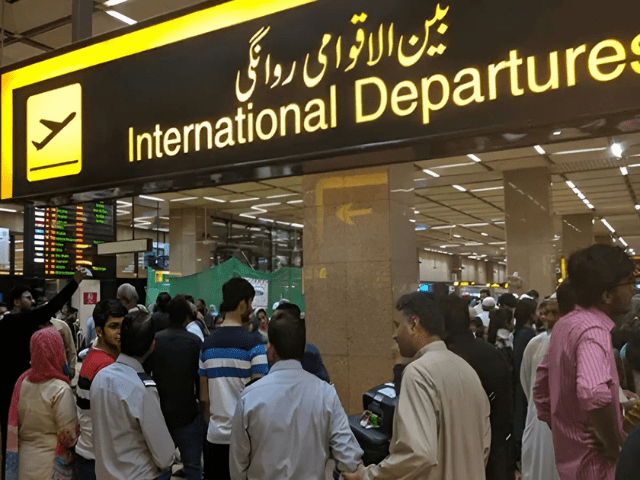In 2024, more than 727,000 Pakistanis migrated abroad in search of employment, a decrease of 15% from the 862,625 people who left in 2023.
While some see this decline as detrimental to Pakistan, others see it as an opportunity for trained professionals to enhance their skills and regain their expertise, Express News reported.
Despite the small numbers, remittances sent home by overseas Pakistanis have played a vital role in stabilizing the national economy.
According to State Bank data, Pakistan received $34.634 billion in remittances in 2024, an increase of 31.36% from the previous year. This influx of foreign exchange has been crucial in maintaining foreign exchange reserves and meeting the nation’s import bills.
Economist Usama Siddiqui noted that remittances have become the backbone of Pakistan’s economy, helping the country overcome economic challenges.
He highlighted that without these remittances, Pakistan’s economic situation would have worsened significantly.
However, concerns remain about the country’s growing brain drain. A report by the Pakistan Institute of Development Economics revealed that 200,000 skilled workers and professionals will leave Pakistan by 2024.
Despite the loss of talent, some argue that migration provides people with opportunities to develop new skills and gain experience that can benefit Pakistan upon their return.
Pakistani expatriates in developed countries are not only enhancing their skills but also contributing to knowledge transfer, education, investment and entrepreneurship.
Sheikh Tahir Imran, a Pakistani expatriate in the United States, acknowledged the brain drain as a setback but argued that many professionals cannot develop their skills within Pakistan’s existing infrastructure.
He emphasized that these individuals, after working in advanced nations, can contribute to the development of Pakistan by bringing back global expertise and technology.
Sikandar Salman, a British Pakistani, noted that Pakistan still has millions of professionals and questioned why the government and private companies are not harnessing their potential.
He urged Pakistan to embrace brain drain similarly to India, which has seen successful individuals, such as the British Prime Minister of Indian descent, occupy prominent global positions.
In the long term, Pakistan could benefit from embracing the mobility of its professionals, ensuring that they continue to contribute both locally and globally.




